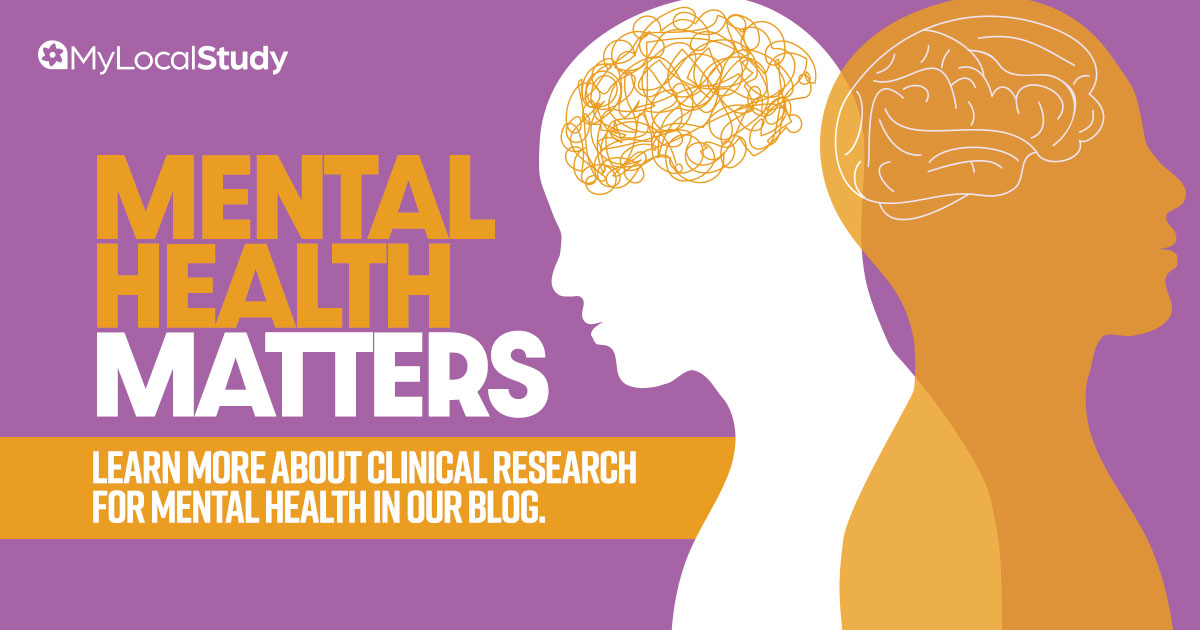Mental health is a fundamental aspect of our overall health; however, it’s often overlooked in public health initiatives. In our latest blog, we bring attention to the critical need to prioritize mental well-being. Keep reading to learn more.
Mental Health in Public Health
The month of May celebrates Mental Health Awareness Month, a critical time to bring attention to our mental well-being and recognize its connection to all areas of our life. The state of our mental health affects our daily routine, our relationships, and even our physical health. For example, common mental conditions such as anxiety and depression can lead to a higher risk of developing physical problems like heart disease or obesity. In fact, research suggests that people with depression are two to four times more likely to develop heart disease than those without. Through spreading awareness, continued research, and increasing access to mental health resources, we can work towards a healthier and happier tomorrow for us all.

3 Common Types of Mental Illness
Mental health illnesses don’t discriminate and can affect anyone, anywhere in the world, and have become increasingly common. The prevalence of anxiety, depression, and PTSD is especially alarming. Recognizing these common mental health illnesses can help individuals seek appropriate treatment and support from mental health professionals.
- Anxiety – Characterized by persistent feelings of worry, fear, and nervousness that can interfere with daily life, school, work, and relationships. Anxiety disorders include generalized anxiety disorder, panic disorder, social anxiety disorder, obsessive-compulsive disorder, and specific phobias. According to the World Health Organization, anxiety disorders affect approximately 301 million people worldwide. Anxiety can affect a person’s thoughts, feelings, behavior, and physical health.
- Depression – A medical condition that affects a person’s mood, behavior, and overall well-being. It’s estimated that around 280 million people worldwide suffer from this condition. Depression can impact a person in various ways, including causing feelings of sadness, hopelessness, and helplessness. It can affect a person’s appetite, sleep patterns, and energy levels, leading to physical symptoms such as fatigue and weight changes. Depression can also cause difficulty in concentrating, making decisions, and remembering things.
- Post-Traumatic Stress Disorder (PTSD) – This condition affects individuals who have experienced traumatic events. It can cause a person to relive the trauma through intrusive memories, flashbacks, and nightmares, which can lead to feelings of fear, anxiety, and depression. PTSD can also cause a person to avoid triggers and situations that may remind them of the trauma, which can impact their daily life. Unfortunately, PTSD is prevalent, with about 13 million people around the world diagnosed each year. It’s estimated that 1 in 13 people will experience PTSD at some point in their lifetime.
Mental Health Studies are Key – The Value of Research
As society’s understanding of mental health illnesses continues to evolve, it’s crucial that mental health research and clinical trials remain a priority worldwide. The importance of research cannot be overstated – it gives us the means to discover effective medications and treatment options for a variety of conditions. From depression and anxiety to bipolar disorder and beyond, the value of mental health research lies in its ability to help us better understand these illnesses and ultimately develop targeted interventions for those who live with them. Thanks to ongoing research, we can look forward to a future where mental health conditions are no longer stigmatized but rather seen as treatable medical conditions that everyone deserves access to!

Don’t overlook the chance to make a meaningful contribution to the field of mental health. Clinical trials are enrolling to explore new medications and treatment options, and MyLocalStudy is here to help you find them! Click here to find a study near you and learn more about how you can help shape the future of mental health care.
Resources:
https://www.synergyresearchcenters.com/what-is-mental-health-clinical-research/

